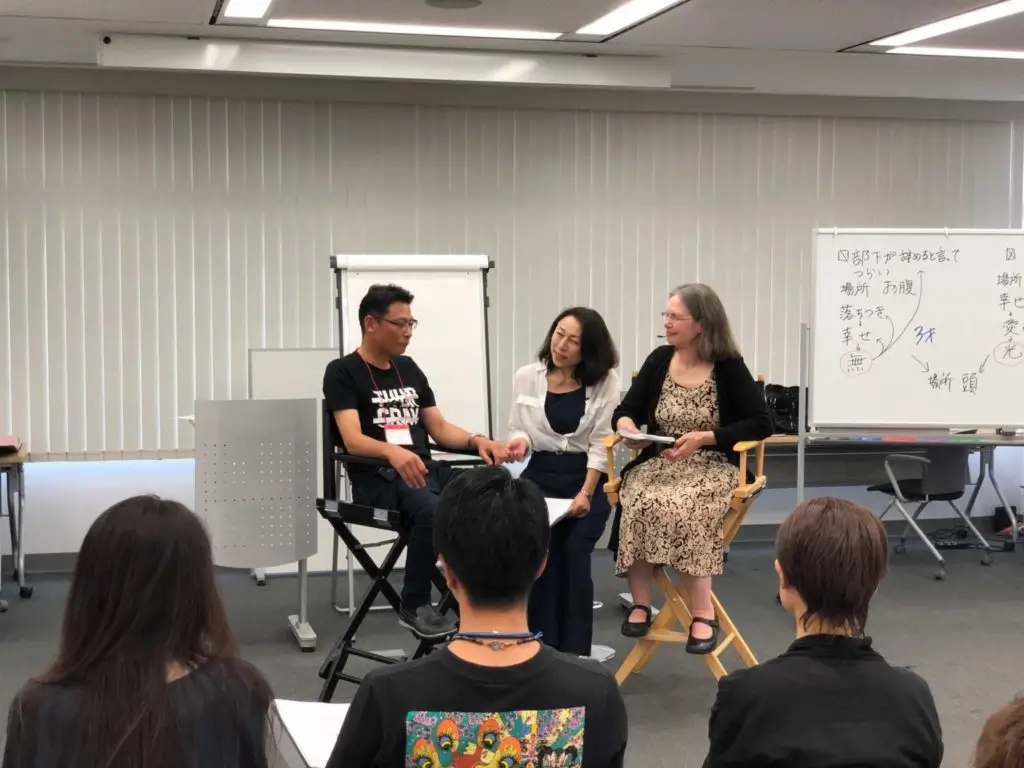Chapter 2
How to Become a Certified Coach with a Spiritual Practice
In Chapter 1, we discussed eight steps to becoming a Certified Spiritual Life Coach. In this chapter, we will be going into more detail about the training and certification step (Step 3).
What Is the Purpose of Coaching Certification for You?
There are two main purposes of certification training:
1. Gaining skills
2. Gaining a credential (for marketing and legal purposes)
It’s important to be clear on which you want, or whether you want both.
Everyone who wants to be successful as a Spiritual Life Coach needs skills, and even someone who already has skills can improve their results by gaining more.
At the same time, a credential can be very useful, both for marketing and possibly for one’s legal standing (check with your own lawyer on that one.)
Most people who want to become a certified spiritual coach want both skills and a credential, so we will deal with each of these purposes:

What to Look for in a Certification Training for Gaining Skills
Here are some things we recommend looking for, if the purpose is gaining skills for Spiritual Life Coaching:
1. Does the methodology get results, and is it supported by research?
2. Can the methodology be applied to a wide range of client goals?
3. Does the methodology reliably elicit experiences that most people would call “spiritual”?
4. Is the course taught by trainers with real-life experience?
5. Does the course use teaching methods that are effective at building skills?
6. Is supervision/review included in the course?
7. Does the course cover a range of practical topics, such as marketing, client motivation, communicating with clients, and working with long-term clients through time?
And now, I’ll take these one at a time, below.
1. Does the methodology get results, and is it supported by research?
As a spiritual life coach, your clients will come to you with life goals. They may want to be more inspired to take action, or they may want to improve their relationships. They may want to be better at dealing with stressful situations. They may want to eat a healthier diet, or stick with their yoga program.
Your job will be to help your clients formulate their goals, and identify the obstacles, so that those obstacles can be transformed.
For example, a client may want to improve their relationship with their child. The obstacle could be:
• Feeling angry when the child doesn’t help around the house
• Being unwilling to set boundaries
• Getting distracted rather than staying present when the child is sharing their experience
• Unreasonably expecting the child to be different than they are
Your client might consciously recognize that these responses contribute to the problem. But a conscious recognition of the problem doesn’t make it change. You’ll want to have a methodology that really works.
Most methodologies can show anecdotal reports of positive change. However, it’s more convincing if there is research supporting a claim that the method gets results. And you’ll want your certificate to show that you are skilled in these methods.
2. Can the methodology be applied to a wide range of client goals?
Some methods can be used to transform a wide variety of obstacles, and some can only be used for a small number of issues.
For example, some methods are only useful for dealing with stress, or for resolving grief, or for changing habits.
Each of those areas are very useful to know how to transform. However, it’s also useful to have a method that can transform practically anything, to build a practice around.
When you become a certified spiritual coach, if you start out with a very effect “multi-purpose” method, then you can still add other pieces to it, to expand your skills in specific areas.
3. Does the methodology reliably elicit experiences that most people would call “spiritual”?
Obviously, if you are providing services under a label of “Spiritual Life Coach,” it helps if you can deliver on the “Spiritual” aspect.
People may have different ideas on what “spiritual” means. This is one way to describe it, and I think it fits for most people:
In general, a state of “oneness” or “beingness” can be described as spiritual. A spiritual state is somehow transcendent, going beyond everyday reactions. A spiritual state isn’t dependent on having things, or doing things, or getting certain responses from others.
A spiritual state has a quality of wholeness to it. Instead of feeling at odds with myself, I can be present as a whole being.
And a spiritual state has a sense of connection with everything and everyone around me. I can still experience that I’m an individual being, and yet there’s a sense that there doesn’t need to be divisions between me and others.
And a spiritual state has a “divine” quality to it. There’s a sense of experiencing “the all” or a broader consciousness.
Spirituality may or may not involve spiritual beliefs. Many people think that beliefs are necessary for spirituality. However, the advantage of a methodology that doesn’t depend on a lot of beliefs is that it makes it easier to work with clients who may have a variety of different beliefs.
4. Is the course taught by trainers with real-life coaching experience?
This one is really self-explanatory. You’ll want the trainers who are certifying you to have worked with clients and gotten results, using spiritual methods.
In addition, it’s helpful if your trainers have done “hands-on” work with training groups. Working effectively in a group setting requires a trainer to be very skilled at helping those who are having difficulties. In our experience, a trainer ends up helping the participants with the toughest difficulties in the group.
5. Does the course use teaching methods that are effective at building skills?
Some life coaching programs will issue a certificate to anyone that passes a multiple-choice test. Seriously. A person will need to learn information to pass a test, but that’s very different from demonstrating skills with an actual client.
An effective training design will include plenty of practice, along with well-designed exercises that give participants experience working with challenging client situations. There’s no way around it: gaining skills takes practice.
6. Is supervision/review included in the course?
In some courses, participants are required to do hands-on exercises, but the standards are often pretty low. Just getting through a process, however awkwardly, with an easy client, may be enough to get certified, in some cases.
The problem is that then the newly-minted certified Spiritual Life Coach won’t be prepared to handle clients in the real world. Real clients don’t follow any script, and a Life Coach will need to have the skills to adapt.
In addition, being successful with challenging clients requires some finesse. Subtle differences in how you phrase things, or the tone of voice you are using, can sometimes be the difference between success—or getting stuck.
Ideally, there will be ample opportunity in a training for participants to receive feedback, to refine their skills, and to demonstrate improvement. The more supervision/review, the better.
Of course, it’s also important to have a supportive learning environment. No one is ever perfect, not even the trainers. However, a course that doesn’t challenge you to improve will be poor preparation for a spiritual coaching practice.
7. Does the course cover a range of practical topics, such as marketing, client motivation, communicating with clients, and working with long-term clients through time?
Having an effective method and being able to use it is very important, but that isn’t all there is to coaching success.
• Where are your clients going to come from?
• How do you keep your clients engaged in the process, even if things get complicated?
• How do you gather information necessary to even get started with a transformational process?
• How do you adjust your style for working with “beginner” clients or with clients who have been with you for awhile?
The answers to these and other questions can be very important for supporting your success!
Certification as a Coaching Credential
Skills development makes a big difference for what your certification will mean, as a credential.
Put yourself in the shoes of a prospective client. Do you want to go to a Spiritual Life Coach who just passed a multiple choice test to get certified? Or do you want to work with someone who has gone through a rigorous training that ensures a high level of skill?
Our suggestion is that you take the Certification Training Course that will make you the coach that you would trust if you were the one looking for a Spiritual Life Coach.
Core Transformation Coaching Certification
Of course, when we designed our Core Transformation Coaching Certification Course, we included everything that we have found to be necessary and useful for a highly successful coaching practice that’s centered around Core Transformation, along with the most effective structure for gaining skills.
Our participants will also have the opportunity to participate in research, which is significant, because we only want the best practitioners to be involved with CT research. So this shows that our intention is to support our trainees in doing very high level coaching work with Core Transformation, and we’ve already done a pilot program that shows it works.







